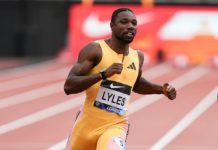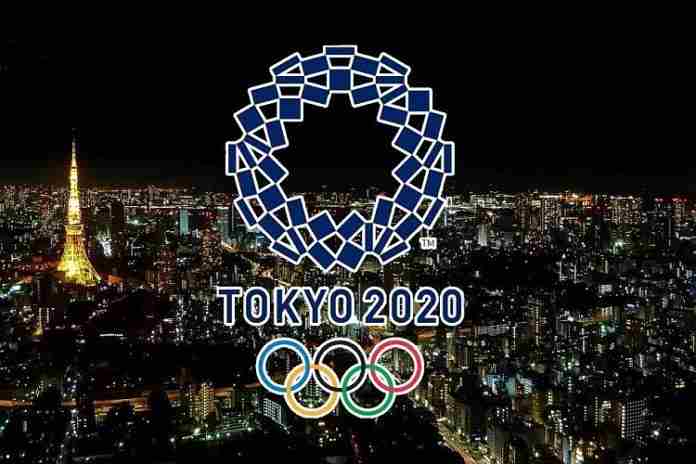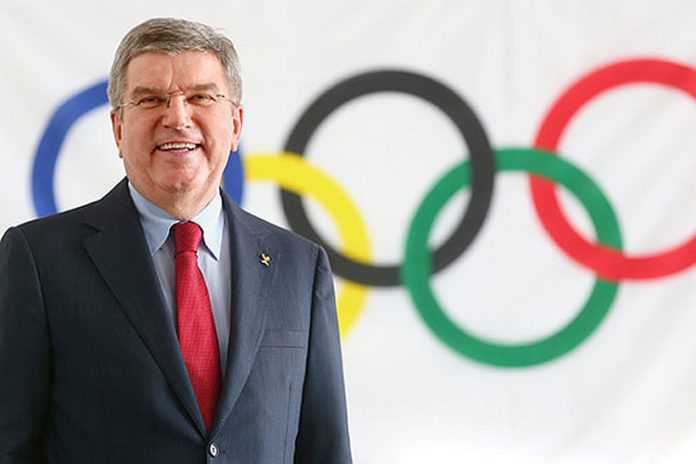Within the Olympic world, Tuesday’s attention was on Lausanne and the meeting of the Executive Board of the International Olympic Committee … and the potential impact of the coronavirus on the 2020 Olympic Games in Tokyo.
IOC President Thomas Bach told reporters that “Following a very comprehensive discussion today with the Executive Board, the IOC remains fully committed to the success of the Tokyo Games 2020.
“I would like to encourage all the athletes to continue their preparation for the Olympic Games Tokyo 2020 with great confidence and full steam.”
The IOC further released a statement about the situation, including
“A joint task force had already been created in mid-February, involving the IOC, Tokyo 2020, the host city of Tokyo, the government of Japan and the World Health Organization (WHO). The IOC EB appreciates and supports the measures being taken, which constitute an important part of Tokyo’s plans to host safe and secure Games.
“The IOC will continue to follow the advice of WHO, as the leading United Nations agency on this topic. The IOC EB expressed its thanks to WHO for its continued valuable advice and cooperation.”
At a 33-minute news conference following the Executive Board meeting, IOC spokesman Mark Adams (GBR) was asked question after question about the situation, but his first answer was the best. Queried how the IOC could be so sure the Games will take place as planned, beginning on 24 July:
“All the advice we are getting from the competent authorities, and the most important one is the U.N.-recognized leads in this, which is the WHO. As you know, there is not even an international travel ban and still not a pandemic announced. All the advice we’re getting is that the Games can and will go ahead.
“There are some issues and complications with qualification, although thankfully National Olympic Committees and IFs are working very closely together and we have seen to be doing a very good job in making sure athletes can compete. So, at this precise time, we are working, moving ahead and expect the Games to begin on the 24th of July.”
Adams was further asked if there had been any Executive Board discussion of a deadline to make a decision about changes to the Games, and the answer was no. (If you are looking at the calendar, the date to keep in mind is not 24 July – the date of the Opening Ceremony – but 14 July, when the Olympic Village will open.)
That’s where we are right now.
There was some outside noise injected into the discussions from Tokyo, where the Japanese government’s Olympics Minister, Seiko Hashimoto, told the National Diet in response to a question that “The IOC has the right to cancel the games only if they are not held during 2020. This can be interpreted to mean the games can be postponed as long as they are held during the calendar year.”
The coronavirus discussion obscured some of the other important business discussed by the Executive Board, including:
● Agreement to the transfer of allegiance for 11 athletes on an expedited basis, including four Russians all now competing for Uzbekistan. These four include potential medal winners Olga Zabelinskaya (road cycling) and Ilyas Bekbulatov (wrestling: Freestyle/70 kg) and two modern pentathletes. Also, ex-Iranian judo World Champion Saeid Mollaei was approved to compete for Mongolia, after being listed as a refugee athlete following his defection last year.
● The IOC passed on changing its outdated 2015 guidelines on transgender athletes, stating that to do so now – so close to the Tokyo Games – would be unfair:
“To date, the IOC has started a process of consultation to consider not only the medical, scientific and legal perspectives, but also that of human rights, with an emphasis on the view and experiences of affected athletes.
“Overall, the discussions so far have confirmed considerable tension between the notions of fairness and inclusion, and the desire and need to protect the women’s category. Opinions are very diverse and difficult to reconcile, and perceptions differ strongly. The new IOC guidelines will have to balance all of these.”
The current goal is not to create a “one size fits all rule,” but “a framework of voluntary guidelines for athletes and International Federations.” The 2015 guidelines suggest a serum testosterone limit for the women’s division of 10 nmol/L, but both World Athletics and the Union Cycliste International have adopted a 5 nmol/L limit, following up on the research in athletics that led to the same limit level for athletes with hydroandrogenism such as South Africa’s double 800 m Olympic champ Caster Semenya of South Africa.
The IOC also approved the proposal by the Paris 2024 organizers to create a temporary venue at the Place de la Concorde for multiple events, and to place the surfing competitions in Tahiti at Teahupo’o, one of the world’s great surfing sites. In his post-meeting news conference, Adams noted not only the enthusiasm of the 2024 organizers to use Tahiti, but the excitement of some of the surfers to compete there rather than in Biarritz, a recent host of the ISA World Championships.
● REAX ● Although it’s just one sport and a small number of competitors, one must ask whether the Paris organizers are doing the International Surfing Association any favors by placing that competition to far away from France. Out of sight, out of mind? And looking ahead to Los Angeles in 2028, the Southern California surfing community will certainly not be interested in placing an Olympic competition in Hawaii!
With the Richard McLaren-led investigation into charges of corruption in the International Weightlifting Federation now in high gear, the IOC also noted “It is with great respect that the IOC Executive Board today had to accept the resignation of Mr. Tamas Ajan from his status as an IOC honorary member.” Ajan, the longtime IWF Secretary General and then President, is sharing his duties while the inquiry takes place and was a member of the IOC from 2000-2010.
● REAX ● Resigning from the IOC is one of the last things that Ajan wants to do and having known him over decades, is undoubtedly deeply distressing to the 81-year-old Hungarian. But by doing so, he removes the question to the IOC leadership of why he continues to be a member, even on an honorary basis. He has plenty of other things to worry about going forward.
The IOC Executive Board meeting will continue on Wednesday, with Bach scheduled to give a news conference at about 7 p.m. Lausanne time; check here for live video coverage.




























